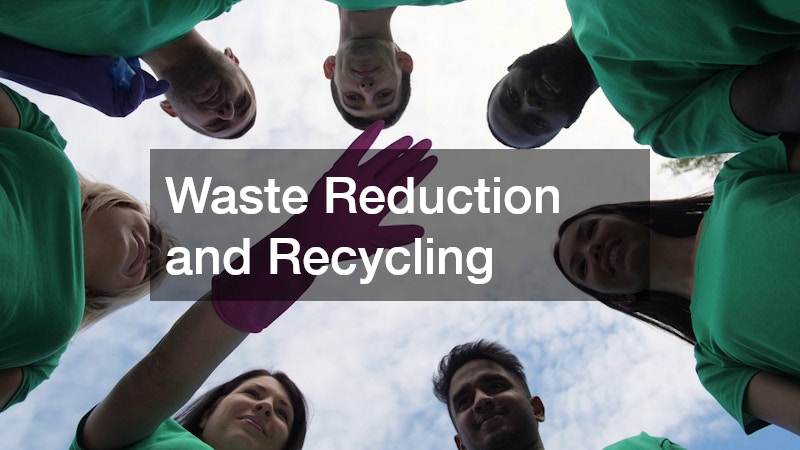Living in a more eco-conscious and environmentally friendly manner isn’t just a trend—it’s becoming a necessity. With climate change accelerating and natural resources dwindling, individuals are seeking ways to lessen their impact on the planet. Fortunately, adopting greener habits doesn’t mean completely overhauling your life. Instead, it’s about making small, smart changes in everyday spaces that collectively contribute to a better planet. Whether you’re planning a home renovation, moving to a new place, or just rethinking your household energy consumption, there are plenty of opportunities to live in a more sustainable way.
This blog will guide you through 12 different areas of life where you can make greener choices. Each section will focus on a specific place or activity and provide actionable steps for improving sustainability. From your home’s infrastructure to professional services and daily personal habits, these suggestions are practical, achievable, and impactful.
You’ll also discover how local service providers—from deck building services to local veterinarians—can support your green efforts. Many of these companies are adopting environmentally responsible practices themselves, giving you more ethical choices when you hire professionals. Plus, we’ll integrate the phrase “sustainable way” throughout the article to reinforce the guiding theme.
By the end of this blog, you’ll have a clear picture of where and how to implement changes that align with living in a sustainable way. So let’s dive in and start building a greener future one decision at a time.
1. Your Outdoor Living Space

Your backyard or patio is a perfect place to implement sustainable changes. If you’re considering upgrades, hiring eco-conscious deck building services can ensure the use of responsibly sourced wood, recycled composite materials, and energy-efficient lighting. These services not only beautify your outdoor area but help you live in a more sustainable way by minimizing your carbon footprint.
Water conservation can also be integrated by choosing native plants that require less watering or installing a rainwater collection system. Outdoor solar lights reduce energy use and add ambiance without increasing your electric bill.
Making greener choices in your outdoor space also includes using non-toxic stains and sealants, which prevent harmful chemicals from leaching into the soil. You might also consider adding a small garden or compost bin to minimize food waste.
Creating a low-maintenance and eco-friendly yard with help from professionals and smart planning is a rewarding step in building a home aligned with a sustainable way of life.
2. During a Residential Move
Relocating to a new home provides a unique opportunity to rethink how you handle belongings and waste. Working with local residential moving companies that offer sustainable practices—like reusable moving boxes and low-emission vehicles—helps lower the environmental impact of your move.
Instead of packing everything, consider decluttering responsibly. Donate usable items to charities, recycle electronics, and repurpose furniture when possible. Opting for digital documentation rather than printing moving checklists or inventory sheets also contributes to a sustainable way of living.
Moving is also a great time to start fresh with green habits in your new home. Install LED bulbs, energy-efficient appliances, and water-saving fixtures as soon as you arrive. Let the move be your starting line for committing to better choices.
Choosing a moving company that aligns with these values sends a message about your dedication to greener living and sets the tone for a more sustainable way forward in your new space.
3. Home Heating and Cooling
Heating and cooling systems consume a significant amount of energy in residential properties. Investing in energy-efficient AC services not only cuts down on your electricity bill but also helps the planet. Many modern units use less refrigerant and come with smart thermostats that optimize energy use.
Regular maintenance is key—clean filters, inspect ducts, and ensure seals are tight. Poorly maintained systems require more energy, increasing your carbon footprint.
Consider switching to ceiling fans or open-window ventilation during moderate weather. Installing reflective roof coatings or insulating windows can also reduce reliance on AC.
All of these steps promote a sustainable way to maintain indoor comfort while being mindful of environmental impact. Choosing professionals who emphasize eco-friendly practices ensures long-term savings and a healthier planet.
4. Hosting Events or Presentations

When organizing meetings or events, especially in professional settings, partnering with AV companies that prioritize green practices can make a significant difference. Many audiovisual providers now offer energy-efficient equipment, LED displays, and digital alternatives to printed materials.
Additionally, using cloud storage instead of USB drives and reducing equipment duplication cuts down on electronic waste. Renting over buying tech equipment ensures resources are reused rather than discarded.
You can also evaluate the event’s energy footprint—choose venues with sustainable certifications or those powered by renewable energy. Encourage guests to use public transport or carpool.
These steps ensure your event aligns with a sustainable way of conducting business and inspires attendees to adopt similar habits.
5. Fire Safety Systems
While essential for protection, traditional fire prevention systems can also contribute to environmental strain. Choosing fire sprinkler companies that offer low-flow systems or use eco-friendly suppression agents can help balance safety and sustainability.
Modern systems can be engineered to reduce water use during discharge, and some integrate with smart home systems to optimize detection and minimize waste.
Routine maintenance ensures the system operates efficiently and safely, avoiding water leaks or false triggers that waste resources.
These thoughtful upgrades contribute to a safer and more sustainable way of protecting your home or business. Consult professionals who understand how to implement these systems with minimal ecological impact.
6. Energy Use in Daily Life
Daily household energy use is one of the most impactful areas for improvement. Switching to LED bulbs, using smart plugs, and unplugging devices when not in use all support a more sustainable way of living.
Appliances with ENERGY STAR ratings consume less electricity, and solar panels—though a bigger investment—pay off in long-term energy savings and independence.
Choose rechargeable batteries over disposables, and try to limit the use of high-energy devices during peak hours. Also, consider line drying clothes instead of using a dryer, and cooking with lids on pots to conserve heat.
Every bit of energy saved contributes to a broader movement toward a sustainable way of life. Small, conscious actions at home lead to long-term benefits for the planet.
7. Oral Health Habits

Even your dental routine can reflect your commitment to a greener lifestyle. When you visit a dentist, inquire about their eco-friendly practices. Some dental clinics now use digital X-rays (reducing chemical waste), biodegradable toothbrushes, and mercury-free fillings.
You can also make changes at home—such as switching to toothpaste tablets or powders in recyclable containers, bamboo toothbrushes, and water-saving oral irrigators.
Many dental offices also encourage electronic records and appointment reminders, reducing paper usage. These small choices align with a sustainable way of managing personal health without harming the environment.
Being conscious of the environmental practices of your healthcare providers ensures your values extend into all aspects of life, including your smile.
8. Vehicle Maintenance and Repair
Cars are major contributors to pollution, but your approach to maintenance can help reduce that. Auto body repairs done at eco-conscious shops often involve water-based paints, recycled car parts, and low-emission tools.
Some repair centers even use solar power for their operations and dispose of waste materials responsibly. Asking questions before selecting a provider shows you care about your footprint.
Regular tune-ups and proper tire inflation also reduce fuel consumption. Choosing public transportation, biking, or walking whenever possible complements these efforts.
All of these steps are part of a sustainable way to maintain personal mobility without contributing more than necessary to environmental degradation.
9. Sourcing Materials for Projects
If you’re working on a home improvement or landscaping project, choose stone suppliers that prioritize ethical quarrying and low-impact transportation methods. Locally sourced stone minimizes emissions and supports your regional economy.
Recycled or reclaimed stone options are also available and reduce the need for new extraction. Ask about their environmental certifications or sustainable sourcing policies.
Use stone conservatively, integrating it with natural elements to reduce excess and encourage harmony with the environment.
By sourcing wisely, you’re supporting a sustainable way to enhance your home’s beauty without compromising the earth’s resources.
10. Waste Reduction and Recycling

Recycling is an easy entry point for people beginning their journey toward eco-conscious living. Separate your waste properly—plastic, paper, compostables, and e-waste should all go to the appropriate places. Educate yourself on what your local facility accepts and avoid contamination.
Reuse items creatively before discarding them. Old jars can become storage containers, and worn clothing can be turned into cleaning rags. Participate in community swap events or secondhand sales.
Consider bulk buying to minimize packaging and bring your own bags or containers when shopping.
All of these daily decisions represent a sustainable way to reduce waste. With consistent effort, even small changes create significant impact over time.
11. Roofing and Repairs
Your roof protects your home and can also help reduce your energy consumption. Roofing companies that offer sustainable options such as cool roofs, solar tiles, or green roofing materials are worth exploring.
Green roofs, for example, provide natural insulation and help absorb rainwater. Reflective roofing materials reduce heat absorption and lower indoor cooling needs.
Recycled shingles and durable, long-lasting materials minimize replacement frequency and resource use.
Hiring companies focused on sustainability ensures your home maintenance aligns with a sustainable way of life, offering both functional and environmental benefits.
12. Pet Choices
Our furry friends are part of the family—and our environmental responsibility. Local veterinarians increasingly offer sustainable pet care solutions, from biodegradable waste bags to eco-friendly flea treatments.
Pet food companies are beginning to use recyclable packaging and ethically sourced ingredients. You can choose toys and bedding made from recycled or natural materials.
Spaying and neutering help control pet populations and reduce strain on animal shelters and resources. Likewise, choosing local providers cuts down on transportation emissions.
Even your pet’s grooming products can be greener—look for natural shampoos and reusable brushes. Making thoughtful decisions for your pet reflects your broader commitment to a sustainable way of living for every family member.
Sustainability isn’t confined to one room, service, or decision—it’s a mindset that can be applied to nearly every area of your life. From your home’s design and services to your transportation choices and even your pet’s care, there are countless places to implement greener practices. Each section in this guide demonstrates that there’s always an opportunity to adopt a more sustainable way of doing things.
These changes don’t require perfection—they require intention. Choosing eco-conscious professionals like deck building services, local veterinarians, or roofing companies ensures your investments support not only your personal goals but also the health of the planet.
When you select local residential moving companies that prioritize green transport, or AV companies that reduce e-waste, you’re casting a vote for a cleaner world. Rethinking fire sprinkler systems, dentist practices, and even auto body repairs allows you to align your everyday life with a sustainable way of thinking.
The sustainable way is not just about eco-products; it’s about smarter choices. If each of us commits to even a few of these suggestions, we collectively create a massive positive impact. Whether you’re just starting or are looking to level up your green game, the tools and opportunities are within reach.
Living in a more sustainable way isn’t about achieving perfection—it’s about consistent progress and conscious decision-making. Every step you take toward reducing waste, conserving energy, or choosing eco-friendly products contributes to a larger global movement. Whether you’re upgrading your home with greener systems, supporting local services with sustainable practices, or simply reevaluating how you travel and consume, your actions matter. Change starts with individuals who are willing to reevaluate old habits and embrace smarter, more thoughtful approaches.
These greener choices often lead to added benefits like cost savings, improved health, and a deeper sense of connection to the environment and your community. Sustainability doesn’t require sacrificing comfort or convenience—in many cases, it enhances them. From energy-efficient appliances to reducing single-use plastics or opting for eco-conscious service providers, the possibilities are endless.
When we each take ownership of our impact and make mindful changes in our homes and routines, we pave the way for a brighter, healthier planet. Your journey toward sustainability may be personal, but its impact is profoundly global. Keep exploring new areas where you can make a difference—because living a greener life, in every place possible, is the ultimate expression of responsibility and care. Start small. Stay consistent. And make every decision count toward a sustainable way of living.
